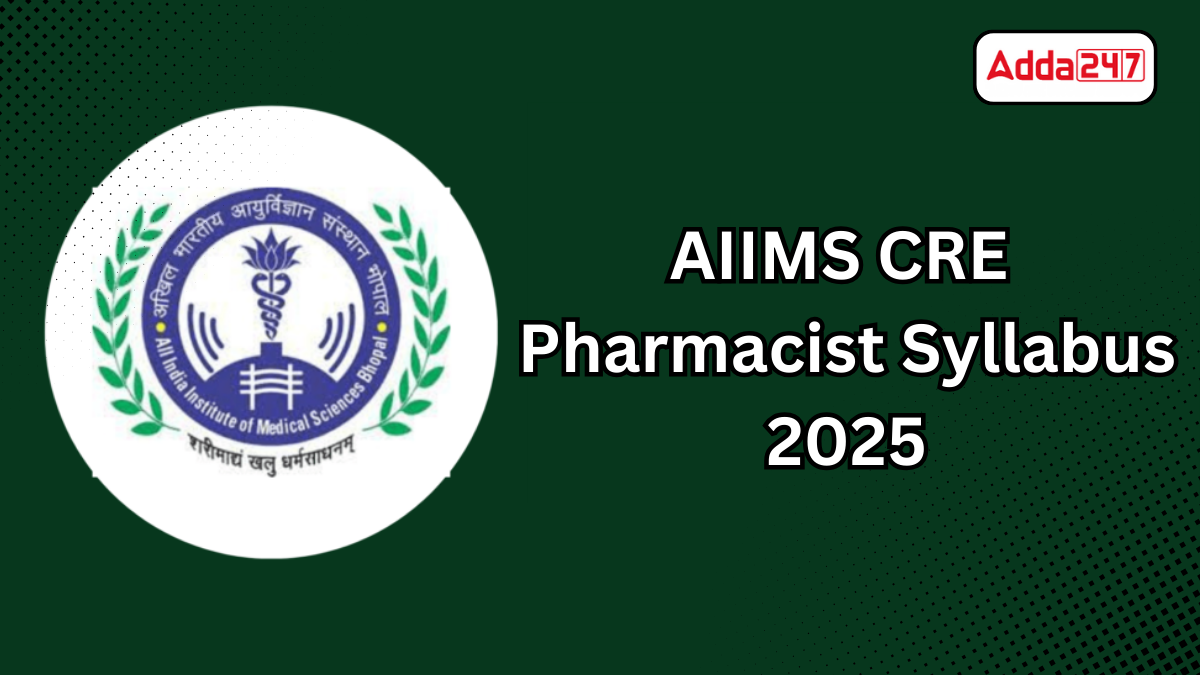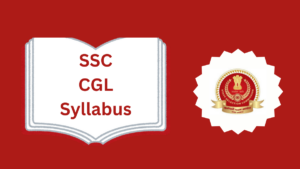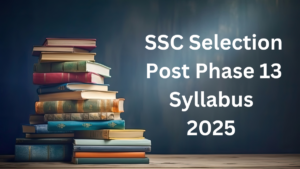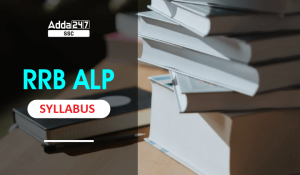Table of Contents
All India Institute of Medical Sciences (AIIMS), New Delhi, has announced the AIIMS CRE Recruitment 2025 to fill 4576 vacancies across various posts, including Pharmacists, Nursing Officers, Public Health Nurses, Assistant Engineers, and Administrative Officers. With the Computer-Based Test (CBT) scheduled for February, candidates should begin their preparation by reviewing the detailed AIIMS CRE Pharmacist Syllabus 2025 along with the Exam Pattern and Selection Process. Read and bookmark this article to access all the details for a successful exam preparation.
AIIMS CRE Pharmacist Syllabus 2025
AIIMS conducts the AIIMS CRE Recruitment Exam to recruit candidates for various job roles. The selection process includes 3 stages. The first stage is a Computer- Based Test worth 400 marks followed by a skill test and document verification.
AIIMS CRE Pharmacist Syllabus
The Common Recruitment Exam (CRE) follows an MCQ-based pattern that covers General Knowledge, Aptitude, Computer Knowledge, and domain-specific topics. Refer to the table below for more updates on this:
| AIIMS CRE Pharmacy Overview | |
| Recruitment Organization | Competitive Recruitment Exam (CRE) |
| Post | Pharmacist |
| Application Mode | Online |
| Category | Syllabus and Exam Pattern |
| Negative Marking | Negative Marking of 1/4 marks for wrong answers |
| Exam Scheme |
|
| Official Website | aiimsexams.ac.in |
AIIMS CRE Pharmacist Syllabus (Subject-wise)
We have provided the detailed AIIMS CRE Pharmacist Syllabus for the 2025 examination to be held in February. Aspirants are suggested to prepare accordingly and plan their strategy effectively before appearing for the exam.
| Subjects in AIIMS CRE Pharmacist Syllabus | Topics Covered in AIIMS CRE Pharmacist Syllabus in General Knowledge |
|---|---|
| General Knowledge | 1. Budget and Five-Year Plans |
| 2. Current Affairs – National and International | |
| 3. Indian National Movement | |
| 4. Sports | |
| 5. Important Days | |
| 6. Indian History | |
| 7. Books and Authors | |
| 8. Awards and Honors | |
| 9. Capitals of India | |
| 10. Indian Economy | |
| 11. Abbreviations | |
| 12. General Policy | |
| 13. Countries and Capitals | |
| 14. International and National Organizations | |
| 15. Science and Technology | |
| 16. Science – Inventions & Discoveries |
Topics in Pharmacy (General)
Topics that will be covered in the AIIMS CRE Pharmacist Syllabus (General) 2025 which aspirants must be aware of and updated are as follows:
| S.No. | Subjects in AIIMS CRE Pharmacist Syllabus (General) | Key Topics |
|---|---|---|
| 1 | Pharmaceutics
|
– Formulation and preparation of pharmaceutical dosage forms. – Dispensing and manufacturing processes. |
| 2 | Pharmacognosy | – Medicinal plants and natural products. – Identification and use of herbs. – Plant-derived drugs. |
| 3 | Pharmaceutical Chemistry | Structure and properties of medicinal compounds. – Synthesis and reactions of drugs. – Analytical techniques. |
| 4 | Biochemistry & Clinical Pathology | – Chemical processes in the body. – Blood and urine analysis. – Laboratory tests and their interpretation. |
| 5 | Human Anatomy & Physiology | – Structure and function of the human body. – Organ systems and their physiological functions. |
| 6 | Health Education & Community Pharmacy | – Health promotion and prevention. – Community pharmacy services. – Patient counseling and education. |
| 7 | Pharmacology & Toxicology | – Drug actions, uses, and side effects. – Toxicological effects of drugs. – Drug interactions and contraindications. |
| 8 | Pharmaceutical Jurisprudence | – Drug regulations and laws. – Ethical practices in pharmacy. – Pharmacy Act and Drug Control. |
| 9 | Drug Store and Business Management | – Managing drug stores and inventory. – Business operations, including financial management and marketing. |
| 10 | Hospital & Clinical Pharmacy | – Hospital pharmacy practices. – Clinical drug monitoring and patient care. – Dispensing medication in clinical settings. |
Pharmacist (Ayurved)
| S.No. | Topics in AIIMS CRE Pharmacist Syllabus (Ayurved) | Subtopics |
|---|---|---|
| 1 | Basic Principles of Ayurveda | Introduction to Ayurveda: Tridosha, Saptadhatu, Malas, Panchamahabhutas, Prakriti, Vikriti Concept of Agni and Ama (digestive fire and toxins) Role of digestive fire in health |
| 2 | Ayurvedic Pharmacology | Herbal Medicine: Common Ayurvedic herbs and their therapeutic uses Pharmacological actions of Ayurvedic herbs (Vata, Pitta, Kapha balancing) Formulations: Kwath, Churna, Asava, Arishta, Bhasma |
| 3 | Dosage and Administration | Ayurvedic dosage forms and administration Preparation and use of Ayurvedic medicines Therapeutic dosages and precautions in drug administration |
| 4 | Pharmaceutical Procedures in Ayurveda | Preparation Techniques: Decoction, Powder, Paste, Infusion, Syrup, Oil and Bhasma Pharmacovigilance: Adverse effects and safety protocols Storage, preservation, and labeling of Ayurvedic medicines |
| 5 | Ayurvedic Drug Interactions | Drug-herb interactions Potential side effects of commonly used Ayurvedic drugs Contraindications of Ayurvedic formulations |
| 6 | Ayurvedic Toxicology (Rasa Shastra) | Understanding Toxicity: Identification and management of toxic substances used in Ayurveda Use of Metals and Minerals in Ayurvedic treatment (e.g., Bhasma) |
| 7 | Clinical Application of Ayurvedic Medicines | Treatment of Common Ailments: Diseases of Vata, Pitta, Kapha imbalance and Ayurvedic remedies Specialized Treatments: For digestive disorders, respiratory issues, skin diseases, etc. |
| 8 | Ayurvedic Pharmacognosy | Study of plant and mineral sources of Ayurvedic drugs Collection, identification, and preparation of medicinal plants Study of Ayurvedic Pharmacopoeia |
| 9 | Basic Medical Sciences for Pharmacists | Anatomy and Physiology: Overview relevant to Ayurvedic treatments Modern Medicine Basics: Interaction of Ayurvedic and allopathic treatments Pathology and Microbiology |
| 10 | Current Trends in Ayurvedic Research | Research methodology in Ayurvedic pharmacology Overview of clinical trials and evidence-based Ayurveda Modern advances in Ayurvedic medicine and formulations |
| 11 | General Knowledge | Ayurveda in the Modern World: Role in contemporary healthcare Healthcare Policies and Regulations related to Ayurvedic drugs General Knowledge: Trends in medicine and healthcare |
Pharmacist (Homeopathy)
| Subject | Description |
|---|---|
| Human Anatomy and Physiology (Homeopathy) | Covers the basics of human anatomy and physiology. |
| Introductory Homeopathy | Covers the basics of homeopathy, including tissue remedies. |
| Clinical Pathology and Toxicology (Homeopathy) | Covers clinical pathology and toxicology. |
| Pharmaceutics (Homeopathy) | Covers the study of dosage forms and drug delivery systems. |
| Pharmaceutical Chemistry (Homeopathy) | Covers the chemistry of compounds used in medicine. |
| Health Education and Community Pharmacy (Homeopathy) | Covers health education and community pharmacy. |
| Pharmacognosy (Homeopathy) | Covers the study of pharmacognosy. |
| Social Pharmacy (Homeopathy) | Covers social pharmacy. |
| Pharmacy Laws (Homeopathy) | Covers pharmacy laws. |
AIIMS CRE Pharmacist Exam Pattern
There will be a total of 100 questions worth 400 marks. Candidates will be given a total of 90 minutes to clear subjects including General Knowledge, Aptitude & Computers and others. Go through the tabulated information regarding the AIIMS CRE Pharmacist Exam Pattern 2025:
NOTE:
- The CRE AIIMS Exam comprises 100 multiple-choice questions (MCQs).
- Each correct answer awards a total of 4 marks to candidates.
- The total exam duration is 90 minutes.
- A negative mark of 1/4 mark is applied for each incorrect answer.
- Qualifying marks are set at 40% for UR/EWS, 35% for OBC, and 30% for SC/ST candidates.
AIIMS CRE Pharmacist Selection Process
The selection process for various Group B and C posts such as Nursing Officer, Public Health Nurse, Assistant Engineer, Administrative Officer, Operators, Lab Attendant, Nursing Attendant, and Multi-Tasking Staff involves three stages. These stages are as follows:
- Computer-Based Test (CBT): The CBT carries a total of 400 marks and is divided into five sections, each with a time limit of 18 minutes.
- Skill Test (For Some Specific Posts): Candidates who qualify for the CBT will be invited to a skill test, which is qualifying in nature.
- Document Verification (DV) and Final Selection: In this stage, the original documents of all selected candidates are verified by the respective AIIMS/Institutes. The final selection is determined based on the candidate’s CBT performance.



 SSC CGL Syllabus 2025 for Tier 1 and Tie...
SSC CGL Syllabus 2025 for Tier 1 and Tie...
 SSC Selection Post Phase 13 Syllabus 202...
SSC Selection Post Phase 13 Syllabus 202...
 RRB ALP Syllabus 2025, Check detailed Sy...
RRB ALP Syllabus 2025, Check detailed Sy...


